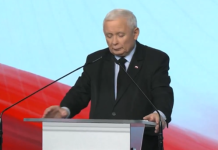
How to Save on Estate Tax in Ontario with Registered Accounts
Registered accounts defer tax payments, compound investments, and earn tax-free income during one’s lifetime. Registered accounts also provide advantages for the estate. Common registered accounts are Registered Retirement Savings Plans (RRSPs), Registered Retirement Income Funds (RRIFs) and Tax-Free Savings Accounts (TFSAs). In Ontario, the Estate Administration Tax (EAT), also known as the probate fee, is payable by the executor of an estate based on the value of all assets of the deceased at the time of death. Currently, EAT is approximately 1.5% on the value of the estate in excess of $50,000. Registered accounts with a designated beneficiary pass directly to the beneficiary and are not included in the value of the deceased’s estate. No EAT is payable on the amount in those accounts. If no beneficiary is named, then the entire amount in the account is subject to EAT.
A testator, the person who is making the Will, can designate a beneficiary of a registered account either by Will, or by signing a beneficiary designation provided by the financial institution that holds the registered account. However, per s. 51(2) of the Succession Law Reform Act, such a designation in a Will is effective only if it names the registered account. According to s. 52(2) to the extent there is any inconsistency in designations, for example different people designated in a Will and in the registered account, the later designation will revoke the earlier designation. A testator may designate multiple beneficiaries or alternate beneficiaries.
There are certain advantages to naming spouses or common-law partners as a beneficiary to a registered account. Normally, the estate will pay income tax on the fair market value of an RRSP or RRIF. However, if the spouse or common-law partner of the deceased is the sole beneficiary of the RRSP or RRIF, then assets may be transferred directly to the beneficiary’s RRSP, RRIF or eligible annuity as a tax-deferred rollover.
A testator may also designate their spouse or common law partner as the successor-holder of their TFSA. The testator must make clear in their Will or registered account that they designate a “successor holder” and not a beneficiary. The successor-holder may continue to hold the deceased’s TFSA and make tax-free withdrawals or contributions depending on their own unused TFSA contribution room. If a successor-holder already has a TFSA, they will now have two accounts. They may also consolidate the accounts without affecting their own TFSA contribution room. In contrast to a successor-holder, a regular beneficiary of a TFSA would receive all the money within the TFSA at the time of the deceased’s death tax-free, however, the funds would lose their “tax-free” status and the TFSA would then be closed.
The testator should caution potential beneficiaries that increases in value of the registered accounts may be subject to income tax and capital gains tax that the beneficiaries would be liable for. If you are in the process of estate planning, it is important to discuss any plans you may have with the people you intend to designate as beneficiaries, with an accountant, and with a lawyer. The lawyers at Malicki Sanchez will be happy to assist you.
Phone: 905-274-1650 Fax: 905-274-1652































































